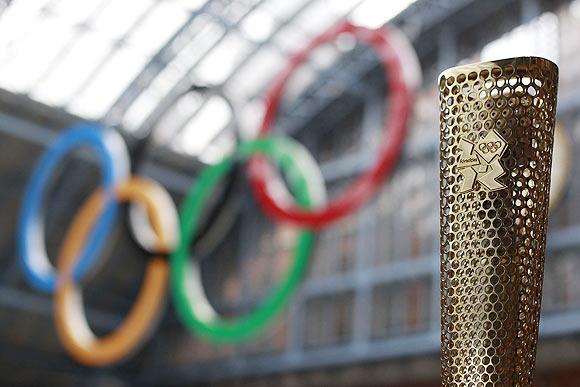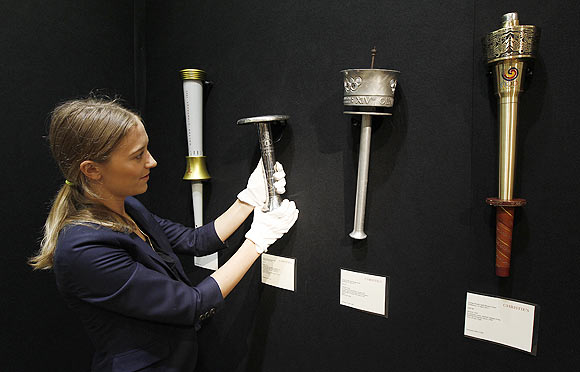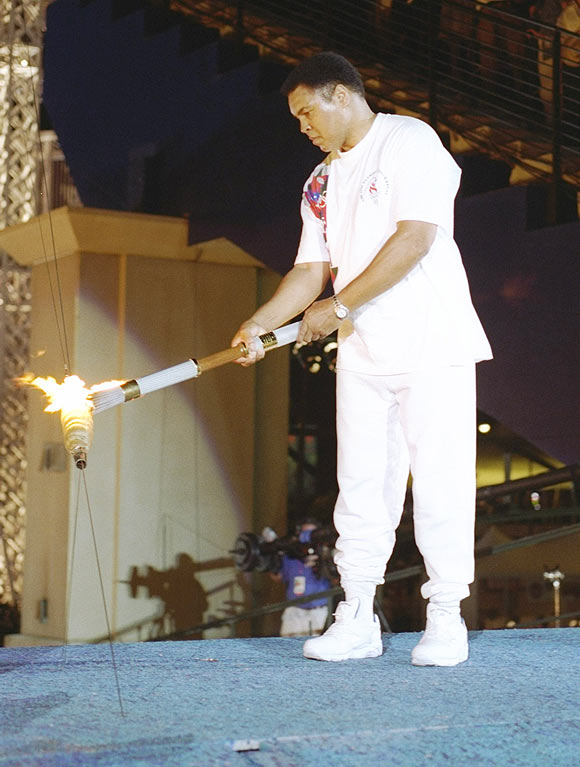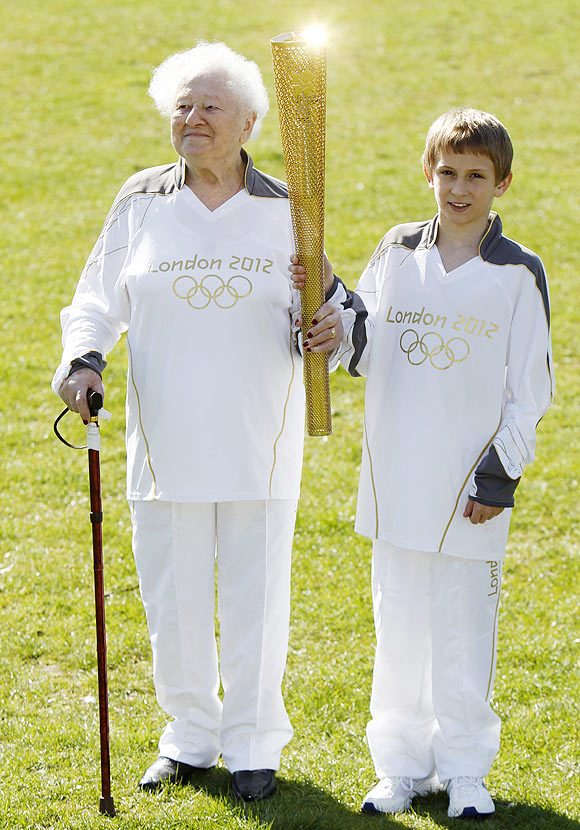 | « Back to article | Print this article |
Olympic history: Torch relay pioneered at 1936 Nazi Games
Mist clears to reveal white marble images from classical Greece culminating in Myron's celebrated statue of an athlete poised to launch a discus in the prologue to Leni Riefenstahl's remarkable documentary film "Olympia".
The statue rotates and melts into an identical image of a contemporary discus thrower. It is succeeded by further paeans to the sculptured Greek ideal of physical beauty with pictures of a shot putter, a javelin thrower and rhythmic gymnasts.
Finally, flame floods the screen followed by a bare-chested runner embarking on the first torch relay of the modern Olympics.
Like the remainder of Riefenstahl's lengthy masterwork, the relay footage is both haunting and disturbing.
The torch travels from Olympia in Greece through Bulgaria, Yugoslavia, Hungary, Austria and Czechoslovakia to Berlin and the 1936 Nazi Games. It is a journey the German army was destined to retrace.
A mighty roar and a sea of fascist salutes greets the final torchbearer Fritz Schilgen as he runs into the Berlin stadium to light the cauldron. Greece lead the 51 nations parading at the opening ceremony, under the gaze of German Chancellor Adolf Hitler.
The flame, the five rings, the Olympic oath, the hymn and the anthems were products of the fanatical nationalism poisoning Europe during the inter-war years.
After World War II burning torch became popular pre-Games ritual
At the suggestion of Berlin Games organiser Carl Diem the torch relay was added, with more than 3,000 runners bearing the torch over 3,187 kms.
The classical origins of the Olympic flame stem from the theft of fire from the Olympian god Zeus by Prometheus and gifted to mankind.
At Olympia, site of the ancient Games, a flame burned at the altar of Hestia, goddess and guardian of fire. It was introduced to the modern Games in Amsterdam in 1928 and burned again in Los Angeles four years later.
Boosted by enthusiastic radio coverage, the Berlin torch relay was a huge success and after World War Two it became firmly established as an essential and popular pre-Games ritual.
The first runner in the 1948 London Games relay took off his military uniform before carrying the flame to commemorate the sacred peace truce observed in the ancient Games. A boat ferried the flame across the channel to England.Parkinson's-hit Ali lit the flame in 1996 through sheer grit
In 1968, the relay retraced the steps of Christopher Columbus to the new world and the Mexico Games and the torch, but not the flame, has twice been carried into space by astronauts. Camels bore the flame across the Australian desert before the 2000 Sydney Games.
The final torchbearer has increasingly been a celebrated athlete since nine-times Olympic distance running champion Paavo Nurmi delighted a packed Finnish crowd when he lit the cauldron at the Helsinki Games. A statue of Nurmi, who was denied the opportunity to set an unmatched record of track and field gold medals when he was declared a professional, stands outside the stadium.
At the 1996 Atlanta Games Muhammad Ali, who as Cassius Clay won the light-heavweight boxing title in the 1960 Rome Olympics, lit the flame through sheer strength of will although his hands were visibly shaking with the effects of Parkinson's syndrome, the cruel legacy of his professional career.Dinah Gould will be oldest to light torch at the 2012 Games
Four years later, Australian aboriginal Cathy Freeman apparently walked on water to ignite the cauldron at the Sydney Games. Unlike Nurmi and Ali, Freeman had yet to win an Olympic title, an omission she rectified in spectacular fashion in the 400 metres final.
The 2008 Beijing Olympic relay was given the theme "Journey of Harmony". It proved anything but on its international travels.
In London, demonstrators protesting against Chinese policies in Tibet tried several times to put out the flame. Security officials extinguished the flame in Paris at least twice and carried it on a bus in the face of further violent protests. The US leg in San Francisco was altered to avoid further trouble.
At the age of 90, Schilgen was a torchbearer again before the Atlanta Games. He died in Kronberg in 2005 aged 99, the same age as Dinah Gould. Gould will be 100 when she carries the torch in her home suburb of Barnet in London in July.

© Copyright 2025 Reuters Limited. All rights reserved. Republication or redistribution of Reuters content, including by framing or similar means, is expressly prohibited without the prior written consent of Reuters. Reuters shall not be liable for any errors or delays in the content, or for any actions taken in reliance thereon.



